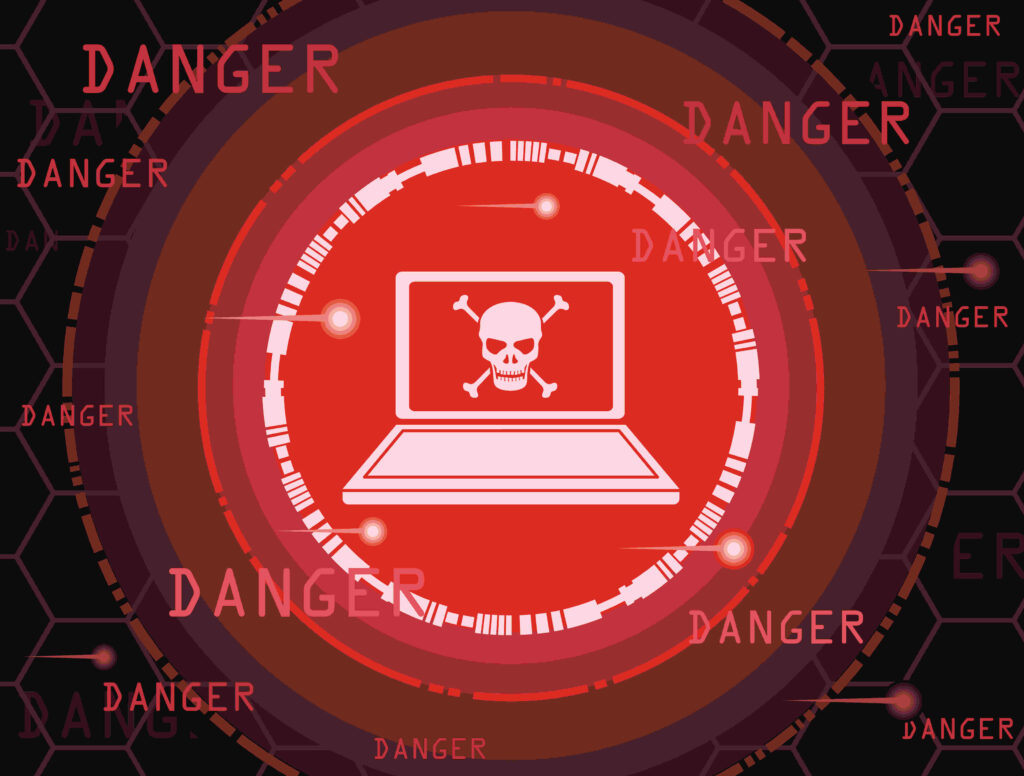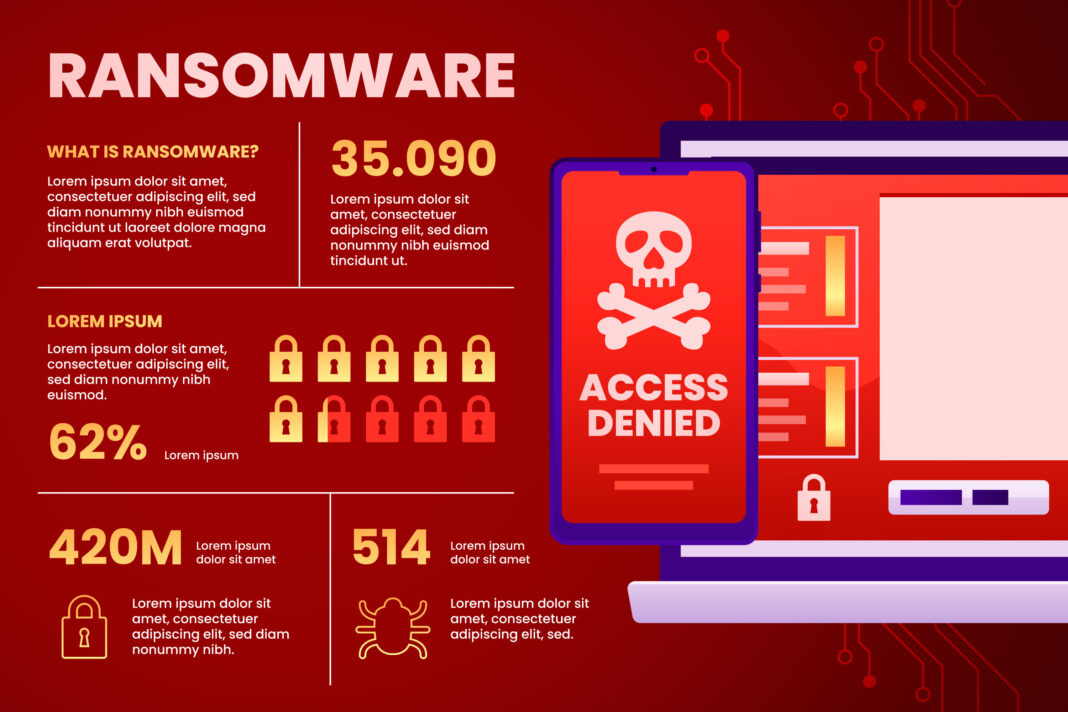The Colonial Pipeline ransomware attack in May 2021 was one of the most significant cyberattacks on critical infrastructure in recent history. This incident not only disrupted fuel supplies across the southeastern United States but also highlighted the vulnerabilities of essential services to cyber threats. Below, we detail the events, causes, and implications of the attack.

What is the Colonial Pipeline?
The Colonial Pipeline is one of the largest pipeline systems in the United States, spanning approximately 5,500 miles. It transports refined petroleum products, including gasoline, diesel, and jet fuel, from the Gulf Coast to the southeastern and eastern United States. Serving nearly 45% of the East Coast’s fuel supply, the pipeline is a critical component of the nation’s energy infrastructure.
The Ransomware Attack: A Timeline of Events
1. Initial Breach
The attack began on May 6, 2021, when hackers gained unauthorized access to Colonial Pipeline’s computer systems. The attackers exploited a compromised password linked to a virtual private network (VPN) account, which lacked multi-factor authentication. This vulnerability allowed the hackers to infiltrate the network undetected.
2. Deployment of Ransomware
Once inside the system, the attackers deployed ransomware known as DarkSide. This malware encrypted Colonial Pipeline’s business and operational data, rendering it inaccessible. The hackers demanded a ransom in exchange for the decryption key.
3. Shutdown of Pipeline Operations
On May 7, Colonial Pipeline took the unprecedented step of shutting down its entire pipeline system to contain the attack. This decision was made to prevent the ransomware from spreading to operational technology (OT) systems that control the physical pipeline. The shutdown led to immediate disruptions in fuel supply across multiple states.
4. Public Disclosure
Colonial Pipeline publicly disclosed the attack on May 8, 2021. The company acknowledged the ransomware incident and its decision to halt pipeline operations. This announcement sparked widespread concern about fuel shortages and price increases.
5. Ransom Payment
On May 9, Colonial Pipeline paid the hackers approximately 75 Bitcoin (equivalent to $4.4 million at the time) to regain access to its systems. The decision to pay the ransom was controversial, as it raised questions about the ethics of negotiating with cybercriminals.
6. Restoration of Operations
Following the ransom payment, Colonial Pipeline began the process of restoring its systems. Full operations resumed on May 15, 2021, but the incident had already caused significant disruptions, including panic buying and fuel shortages in several states.
Who Was Behind the Attack?
The ransomware attack was attributed to DarkSide, a cybercriminal group believed to operate out of Eastern Europe. DarkSide is known for its “ransomware-as-a-service” model, where they develop ransomware and lease it to other criminals in exchange for a share of the profits. The group claimed to target only large corporations and avoid critical infrastructure, but the Colonial Pipeline attack contradicted this stance.
How Did the Attack Impact the United States?
1. Fuel Shortages
The shutdown of the Colonial Pipeline led to immediate fuel shortages across the southeastern United States. Gas stations in states like Georgia, North Carolina, and Virginia reported running out of fuel, causing long lines and price spikes.
2. Economic Consequences
The attack had significant economic implications, with fuel prices rising by nearly 7 cents per gallon within days. The disruption also affected industries reliant on transportation, including airlines and trucking companies.
3. Public Panic
The incident triggered widespread panic buying, exacerbating fuel shortages. Many consumers rushed to fill their tanks, leading to chaotic scenes at gas stations.
4. National Security Concerns
The attack underscored the vulnerability of critical infrastructure to cyber threats. It prompted calls for stronger cybersecurity measures and increased government oversight of private-sector infrastructure.
Lessons Learned from the Colonial Pipeline Attack
1. Importance of Cybersecurity
The attack highlighted the need for robust cybersecurity measures, particularly for critical infrastructure. Companies must implement multi-factor authentication, regular system updates, and employee training to prevent similar incidents.
2. Ransomware as a Growing Threat
The Colonial Pipeline attack demonstrated the increasing sophistication of ransomware attacks. Organizations must develop comprehensive incident response plans to mitigate the impact of such attacks.
3. Ethics of Ransom Payments
The decision to pay the ransom sparked a debate about the ethics of negotiating with cybercriminals. While paying the ransom may provide short-term relief, it can encourage future attacks.
4. Government Role in Cybersecurity
The incident prompted the U.S. government to take a more active role in cybersecurity. In June 2021, the Biden administration issued an executive order aimed at improving the nation’s cybersecurity posture.
Frequently Asked Questions (FAQ)
1. What is ransomware?
Ransomware is a type of malware that encrypts a victim’s data, rendering it inaccessible until a ransom is paid. The attackers typically demand payment in cryptocurrency to avoid detection.
2. Why was the Colonial Pipeline targeted?
The Colonial Pipeline was likely targeted due to its critical role in the U.S. energy infrastructure. Attackers may have believed that disrupting such a vital service would increase the likelihood of a ransom payment.
3. How can companies protect themselves from ransomware?
Companies can protect themselves by implementing strong cybersecurity measures, such as multi-factor authentication, regular software updates, and employee training. Additionally, organizations should maintain offline backups of critical data.
4. What was the role of the U.S. government in responding to the attack?
The U.S. government played a key role in coordinating the response to the attack. Federal agencies, including the FBI and the Department of Energy, worked with Colonial Pipeline to restore operations and investigate the incident.
5. Has DarkSide been held accountable for the attack?
As of now, DarkSide has not been held accountable for the attack. The group reportedly disbanded shortly after the incident, but its members remain at large.
Conclusion
The Colonial Pipeline ransomware attack was a wake-up call for the United States and the world. It exposed the vulnerabilities of critical infrastructure to cyber threats and underscored the need for stronger cybersecurity measures. By learning from this incident, organizations and governments can better prepare for future attacks and protect essential services from disruption. The lessons learned from the Colonial Pipeline attack will shape cybersecurity strategies for years to come.

